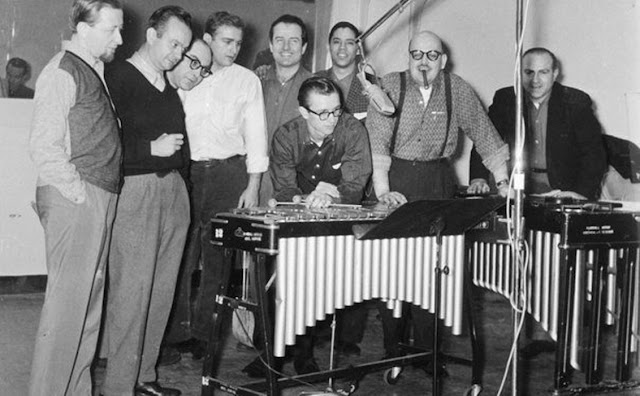 |
| Portada de Take Me Dancing |
Piazzolla is one of the best-known Argentinian musicians in the world, even though he died over twenty years ago. He knew international acclaim, worked with great artists, flew over stylistic boundaries and reached different countries and audiences... However, between his upward rise culminating with the artistic success of his Octeto Buenos Aires, and the turning point marked by “Adios Nonino”, the requiem to his father, who died in late 1959, there were two years of misty uncertainty, spent mainly in New York City, from February 1958 to June 1960. While the city was bursting with all kinds of music (in a especially glorious year for jazz) and the US was, more than ever, the most powerful country in the world, reaching the end of Eisenhower's years at the helm, Piazzolla was struggling with the American dream. His recollections of it, bittersweet, hardly come up in the memoirs compiled by with Natalio Gorín.
 |
| The New Yorker, January 30th, 1960. The "collection of Argentinians" refers to Copes, Piazzolla, Rausch & co. |
The portrait of Piazzolla's life in New York is somewhat blurry. Beyond the stories of those who knew or worked with him, his name hardly appears among press notices; even though these note some of his perfomances, he rarely gets a name check, nor does dancer Juan Carlos Copes, whom Piazzolla worked with from the second half of 1959 to the beginning of 1960. Copes himself has told the story of how the fire brigade had to be called to deal with the crowds at Waldorf Astoria where they performed there, but those were probably due more to headliner Eddie Fisher than to a sudden tango fever sweeping Manhattan. The great Piazzolla was, in fact, just another anonymous musician among the thousands who made a living in late-1950s New York, a golden age for studio work in the city.
Argentinian Carlos Rausch was a pianist and copyist for hire in New York at the time, and he worked with Piazzolla oftentimes. This is part of his first ever interview about Piazzolla (see this previous post for more), for which he listened to the albums Take Me Dancing and Evening in Buenos Aires, recorded by Piazzolla in New York in 1959, also for the first time. The following is my translation of the original interview, which was made in Spanish.
 |
| Carlos Rausch and Astor Piazzolla, New York, May 1959 (© Carlos Rausch) |

